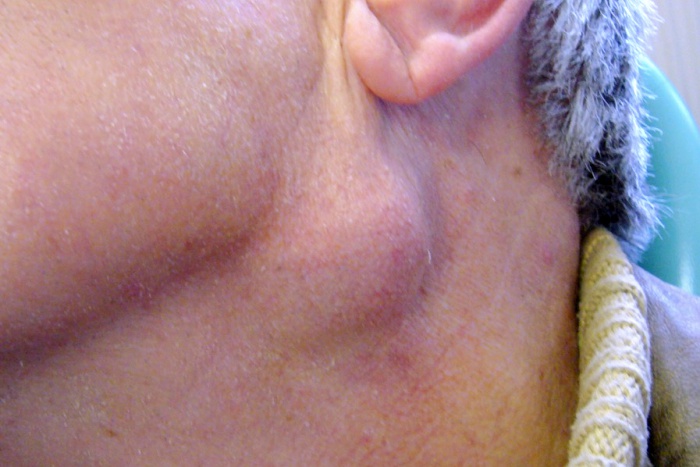Lymph nodes play a crucial role in our immune system by helping to combat germs and illnesses. However, if the lymph nodes in your neck become swollen or painful, it could indicate an underlying issue. Generally, swollen lymph nodes are a benign response to an infection, but they can also signal something more serious, such as cancer. So, when should you be concerned about a lump in your neck, and what steps should you take?
To grasp the significance of lumps in the neck, it’s essential to understand the function of lymph nodes. These small, bean-shaped structures filter lymph fluid, removing germs, waste, and cancer cells. When you’re unwell, your lymph nodes may enlarge as they work to trap and eliminate the invading pathogens. Typically, this swelling indicates that your immune system is functioning effectively.
Large lymph nodes can occasionally indicate an underlying issue. If a lymph node becomes hard, enlarges rapidly, or is accompanied by other symptoms such as fever, weight loss, or pain, it may suggest a more serious health concern. In such cases, it’s crucial to consult a doctor to determine the cause of the swelling.

When to Consult a Doctor
If you notice a swollen lymph node in your neck, it’s important to monitor it closely. You should see a doctor if any of the following occurs:
- Swelling persists for more than two weeks
- Unexplained fever, weight loss, or pain
- A lymph node that enlarges rapidly or feels hard
- Multiple large lymph nodes appearing in different areas of your body
- How Doctors Determine Swollen Lymph Nodes
When you visit a doctor for a swollen lymph node, they will perform a physical examination, inquire about your medical history, and may recommend imaging tests or a biopsy to determine the cause of the swelling.

Options for Managing Swollen Lymph Nodes
The approach to treating swollen lymph nodes varies based on the underlying cause. If an infection is responsible for the swelling, your doctor might prescribe medication or recommend over-the-counter pain relievers. In cases where an inflammatory condition is the culprit, your doctor may suggest treatments that help reduce inflammation or suppress the immune response. For swollen lymph nodes due to cancer, options may include chemotherapy, radiation therapy, or surgical removal of the affected lymph nodes.

In conclusion
Swollen lymph nodes in the neck can indicate an illness, but they are often not a cause for concern. By being aware of the symptoms and signs associated with swollen lymph nodes, as well as knowing when to consult a doctor, you can ensure that you receive prompt care and treatment if necessary. It’s important to seek medical attention immediately if you notice a swollen lymph node that persists, enlarges rapidly, or is accompanied by other symptoms.
